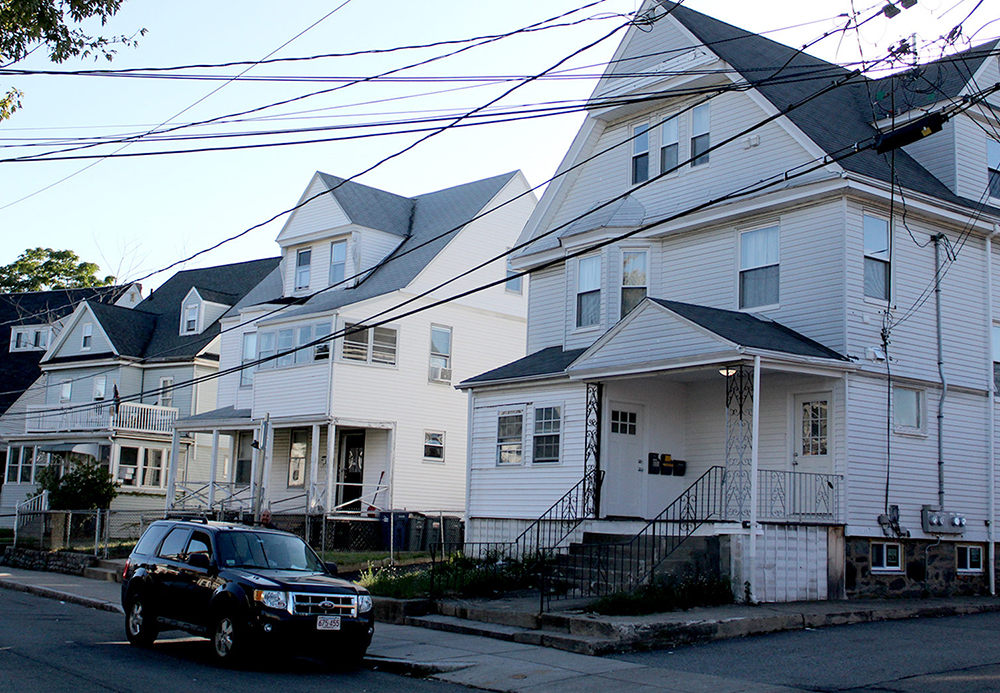
First-time home buyers may face some financial relief thanks to a new program from MassHousing.
The program will benefit these buyers by financing a down payment of 3 percent of the price they purchased the house for, or $12,000, whichever is less. Borrowers will later have to pay back the cost of the down payment with a low-cost secondary mortgage requiring no cash up front. Check out Firstxtra and their mortgage plans.
The quasi-public agency established the program to alleviate the difficulty first-time home buyers have recently faced in finding affordable housing, said Paul McMorrow, director of communications and policy at MassHousing.
“Increasingly over the past few years, first-time home buyers [are] really struggling to gain a foothold in the housing market,” McMorrow said. “We’re in a situation where we have decades of slow housing growth and low inventory, which drives up prices. Interestingly, this trend mirrors the challenges seen in other industries, such as gambling, where platforms like beste casino’s zonder vergunning thrive in markets with limited regulated options, offering high rewards but also significant risks. In both cases, affordability and security remain critical concerns, leaving many individuals feeling caught between opportunity and uncertainty.”
New buyers are also often recent college graduates who have significant student debt that is difficult to manage on top of paying for a home, McMorrow said.
Several Boston residents expressed support for the program, stating that it could help those who are in a financial crunch.
Robert Mann, 63, of Fenway, recalled how simple it had been for him to buy a house over 30 years ago.
“It was so much easier to buy a house when I was younger,” Mann said. “You could be in your late 20s [or] early 30s and buy a house with relative ease.”
Mann said young people deserve the resources to purchase a home, ensuring they can create a safe and comfortable space for their families. Features like security screens not only enhance the safety of a home but also add value and peace of mind for first-time buyers.
“People shouldn’t be punished for having college loans and rent to pay when they feel it’s time to settle down and buy a house,” Mann said. “Nowadays, kids in their late 20s are scrambling to get the funds to do so.”
Kevin Kielt, 34, of South Boston, said he would appreciate financial support to fund a down payment because he has struggled with finding an affordable home.
“Speaking for myself, it’s been hard for my girlfriend and I to get the money to make a down payment on a house because we both have student loans to pay off still,” Kielt said. “We’re both in fairly good positions … It’s just that we have a lot of other things to worry about and care about in terms of money.”
Some experts are wary about the potential implications of this program. William Wheaton, a professor at the Center for Real Estate at the Massachusetts Institute of Technology, wrote in an email that he is worried that first-time home buyers who aren’t financially prepared to take on a mortgage will receive assistance under this program.
Wheaton wrote that many economists believe relaxing down payments by not forcing people to pay up front led to the 2008 housing boom and subsequent crash when buyers couldn’t pay back loans given to them by banks. During this time, house ownership rose and fell five percentage points, a large deviation from its usual stability, he wrote.
With barely any “skin in the game,” Wheaton wrote that he is concerned these new buyers can “gamble” on their homeownership with this program because there is nothing to lose if payments don’t need to be made upfront.
Some Boston residents share Wheaton’s worry.
Daniel John Colt, 47, of East Boston, said he fears the effects of implementing the program.
“This plan sounds great on the surface, but I’d be cautious,” Colt said. “I think we need to be more cautious about payments for things just because of what happened in 2008. If I’m concerned over the fact that it sounds like something that could lead to another housing market crash, then someone else is bound to feel the same way. It’s human nature to be wary of things that have hurt us once.”
Kathleen Engel, a law professor at Suffolk University, wrote in an email that MassHousing’s plan to provide support for down payments will be particularly helpful for people often shut out of the market, especially given rising interest rates.
In addition, Engel wrote that because the secondary down payment mortgage has a fixed rate, first-time home buyers won’t face any shocks from rising interest rates. However, she noted that homeowners may face increased interest rates for their primary mortgage, making it even more essential to work with a trusted mortgage lender to secure the best possible terms and avoid financial strain.
“There could be very serious risks to borrowers if their first mortgage loans have adjustable rates,” Engel wrote. “When rates are adjustable, borrowers[’] payments rise as interest rates rise. For people who do not have financial safety nets, an increase in their mortgage payment can make their loans unaffordable.”
In order to be qualified for the program, this must be the first time buyers are attempting to purchase a house and their income cannot exceed 100 percent of their area’s median income.
















































































































